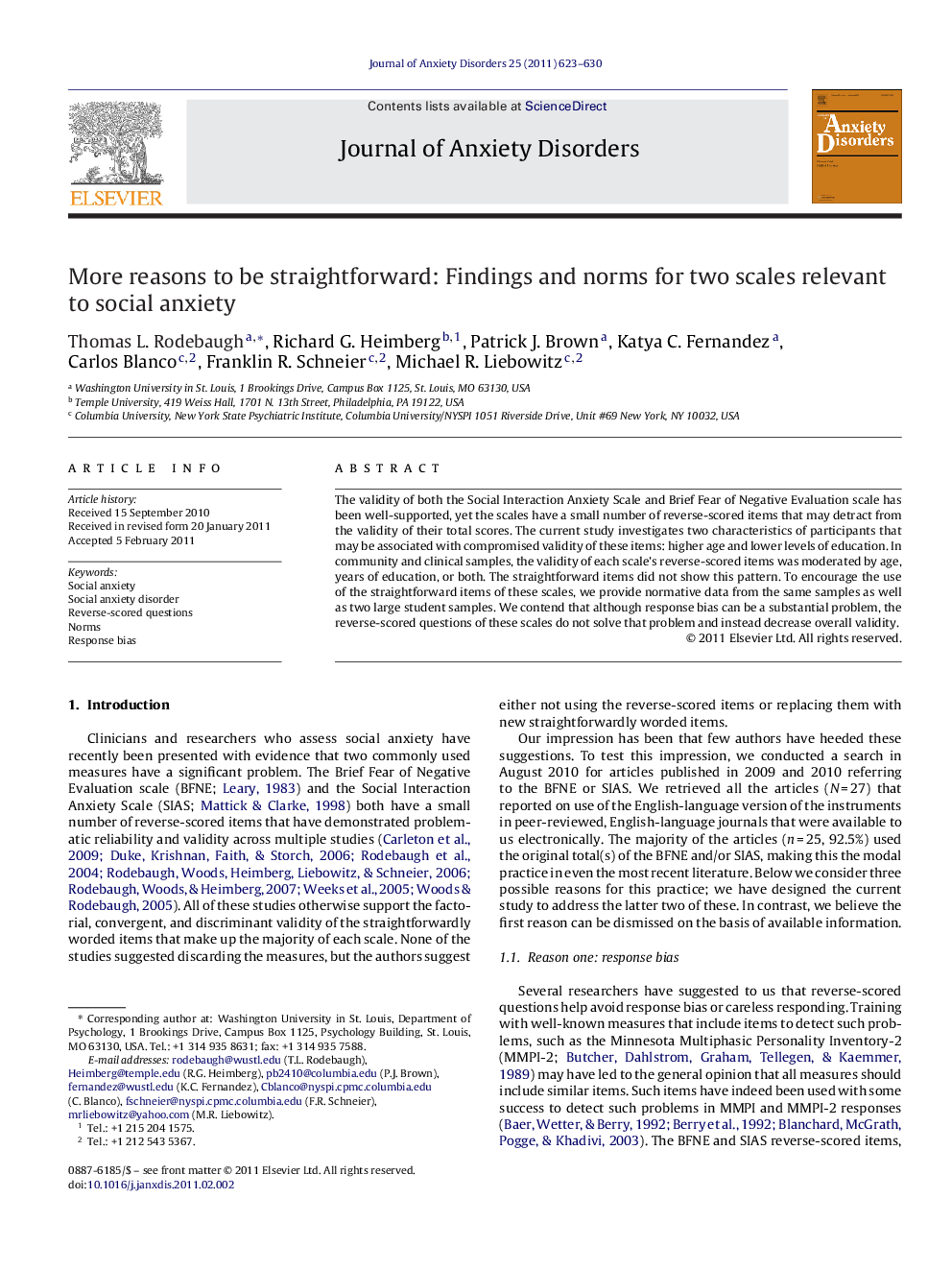| Article ID | Journal | Published Year | Pages | File Type |
|---|---|---|---|---|
| 909437 | Journal of Anxiety Disorders | 2011 | 8 Pages |
The validity of both the Social Interaction Anxiety Scale and Brief Fear of Negative Evaluation scale has been well-supported, yet the scales have a small number of reverse-scored items that may detract from the validity of their total scores. The current study investigates two characteristics of participants that may be associated with compromised validity of these items: higher age and lower levels of education. In community and clinical samples, the validity of each scale's reverse-scored items was moderated by age, years of education, or both. The straightforward items did not show this pattern. To encourage the use of the straightforward items of these scales, we provide normative data from the same samples as well as two large student samples. We contend that although response bias can be a substantial problem, the reverse-scored questions of these scales do not solve that problem and instead decrease overall validity.
Research highlights► Two commonly used scales related to social anxiety have poorly performing reverse-scored questions. ► We provide further evidence of this finding by focusing on age and years of education. ► We provide stratified norms for both scales to encourage use of straightforward totals.
